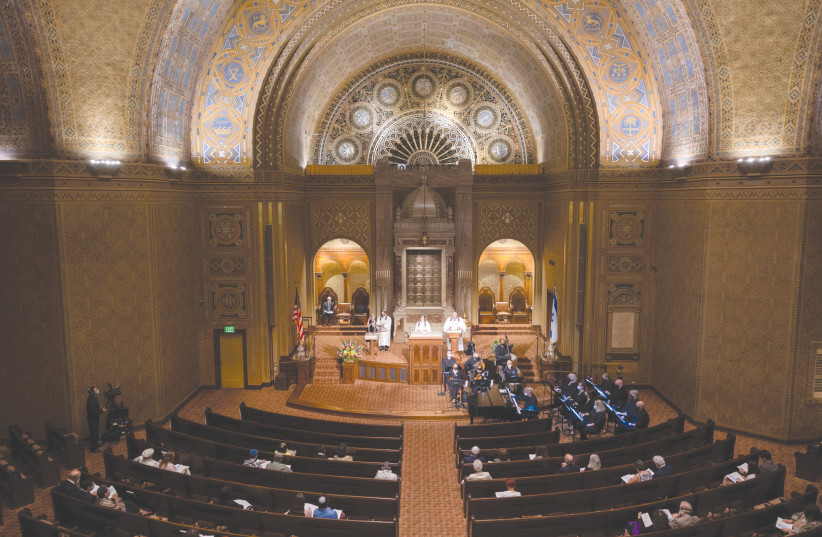The word teshuva in Hebrew means “to return,” and in a deeper sense, it means “returning to the source.” And yet, in most standard translations of Jewish scriptures, teshuva is translated as “repentance.”
As a ba’al teshuva myself, meaning someone who grew up secular and became religious later in life, I always found this discrepancy disturbing. What I was not aware of, however, is that English-speaking Muslim “ba’alei teshuva” are facing the exact same issue with translations of the Quran.
This deliberate and enduring endeavor aims to establish enduring connections, ultimately laying the foundation for a transformative breakthrough that resonates through generations.”
Rabbis-Imams joint declaration
I had the privilege of discussing this with an esteemed delegation of American Imams who visited Israel just before Rosh Hashanah, at the peak of the teshuva days of Elul.
In my view, the purpose of interfaith encounters should not be producing nice photo-ops for social media, but rather discussing the core ideas of Judaism and Islam. Diving into the similarities and differences between both of these Abrahamic religions can enable us to go beyond mere tolerance and potentially reach a genuine reconciliation at the foundational level.
The concept of teshuva appears in the beginning of the Quran, in Surat-El-Fatiha, “The Opening Sura” (fatiha and the Hebrew word petiha, which means “opening,” are obviously related). The seventh aya (verse) says that although certain human actions incur the wrath of God, this wrath is mostly concealed and the road to return is always open.
More explicitly, aya 37 of the second sura (Surat-el-Bakara, named after the “red cow” biblical mitzvah), says that Adam returned to God after his sin, and God the merciful accepted him back. In Arabic, he committed tawaba, which literally means “to return.” Note that the words tawaba and teshuva are also very similar. However, here as well it is usually translated as “repentance,” and not as “return.”

The imams we met with are all disciples of the great American Imam Warith Deen Muhammed. Many of them did not grow up Muslim and see themselves as Muslim ba’alei teshuva of some sort. They spent a week in Israel, organized by our partners at Sharaka, and dedicated the last day of their journey to meeting Israeli rabbis.
They visited the Shorashim Center for Jewish-Palestinian cooperation in Gush Etzion as well as Ohr Torah Stone’s Beren-Machanaim yeshiva and the Midreshet Lindenbaum seminary.
During the second part of the day, we held a Jewish-Muslim beit midrash (study hall) and explored texts from both traditions in an attempt to take teshuva/tawaba to the next level: What does it mean to return to the source as nations and religions, and not only as individuals?
The first step in a long march
We did not reach a definite answer, yet. However, it seems that if we want to turn religion into part of the solution to global challenges and conflicts, instead of part of the problem, we would be better off investing in deep learning of each other’s spiritual roots and sources and go beyond mere tolerance to each other. In this sense, teshuva and tawaba mean not only returning to God, but also returning to each other as humans made in the image of God.
This notion informed, to some extent, the joint declaration we issued that day, which reads:
“We hope this encounter between American imams and Israeli rabbis will be part of a long-term process of dialogue and cooperation between Muslim and Jewish religious leaders. This deliberate and enduring endeavor aims to establish enduring connections, ultimately laying the foundation for a transformative breakthrough that resonates through generations.”
As we enter the new Jewish year of 5784 and head toward our holiest day of the year, Yom Kippur, let us also pray that our teshuva this year will expand beyond our individual and communal circles and resonate with the larger circles of humanity.
The writer, a rabbi, is the managing director of the Blickle Institute for Interfaith Dialogue, a division of Ohr Torah Stone.
